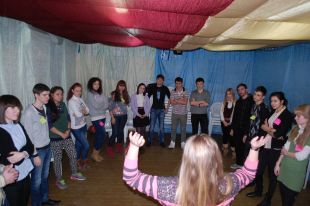Education and Science, Legislation, Lithuania, Society
International Internet Magazine. Baltic States news & analytics
Thursday, 18.04.2024, 19:56
Lithuania's Audit Office: development of non-formal education is insufficient
 Print version
Print version |
|---|
"Properly organisation of non-formal education would help reduce the number of children who drop out of school, improve the results of the education system, and facilitate the entry of young people into the labour market; however, so far the development of this type of education has been insufficient, more attention should be paid to issues of after-school activities and education for children and adolescents. This is also relevant for social exclusion risk groups that require additional socialisation, because this involves children and young people in social processes," said Auditor General Giedre Svediene.
The auditors draw attention to the fact that it is difficult to take evidence-based decisions in the field of non-formal education, to analyse and evaluate the status of and changes in this field and funding, as well as to plan its development, because there is a lack of data in the area, and the available figures are inaccurate and incomplete. The information saying that about 27% of school-children have been participating in non-formal education activities over the last few years is inaccurate and too optimistic, so the aim increase the number of children to 60% by 2017 may not be achieved.
It was stated that the network of institutions of children's non-formal education in the country is poorly developed and uneven (especially in smaller towns and rural areas), there is a lack of diversity of activities (there is a predominance of education programmes in music and sports), children do not have equal opportunities to participate in non-formal education, and the current funding mechanism does not encourage increasing the supply of activities and development of the network of such education institutions. About 90% of all institutions of non-formal education are concentrated in large cities of the country or in district municipal centres, so it is difficult for school-children to get there from remote areas. In addition, the number of children participating in non-formal education activities varies significantly across municipalities (from 4 to 61%).
The audit also revealed that although 42% of all municipalities had prepared and approved procedures for external assessment of schools of non-formal education and those complementing formal education, they do not carry out external performance assessment thus failing to ensure quality control. In addition, long-term non-formal education programmes for school-children are developed in municipalities following the description of general criteria for non-formal education programmes, which does not provide specific requirements for the content of these programmes, teaching methods and measures, or municipalities approve programme requirements at their own discretion, so no conditions are created for children to get services of similar quality. Also, adequate material resources and educational environment of non-formal education institutions for children is not ensured in 48% of municipalities, 83% of municipalities do not have enough of equipment or tools to organise a high quality education process, therefore, non-formal education activities are unattractive for children and do not encourage them to participate.
The National Audit Office issued recommendations to the Ministry of Education and Science to help ensure the proper quality of non-formal education for all school-children and the efficient use of public and municipal funds allocated for this purpose.








 «The Baltic Course» Is Sold and Stays in Business!
«The Baltic Course» Is Sold and Stays in Business!

